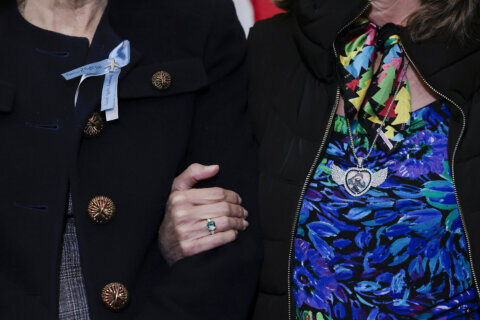WASHINGTON — It won’t be necessary for Uber and Lyft drivers in Maryland to get fingerprinted during background checks.
The ride sharing companies won waivers Thursday of Maryland’s fingerprint-based background check requirements. Uber had threatened to pull out of Maryland if the waiver was not granted.
The Maryland Public Service Commission approved the waivers based on information submitted by the companies and despite three days of public hearings last month over the objections of the Office of the People’s Counsel, commission staff and a cab company. Each said the fingerprint-based checks do a better job of identifying criminal history.
The commission found that “none of the background checks at issue are completely comprehensive and accurate,” so the background checks used by Uber and Lyft can meet a similar standard as the fingerprint-based checks if the companies agree to a series of conditions that include:
- All drivers must have their background checks rerun annually.
- The companies hired to do the background checks must be accredited.
- Drivers must agree to report any arrests or convictions to Uber or Lyft within three business days.
- Uber and Lyft must look at the entire adult criminal history of a driver in Maryland and, where possible, other jurisdictions.
- Uber and Lyft must require drivers who are permanently deactivated by the company to return the company insignia riders use to identify an Uber or Lyft vehicle.
The companies must notify the Public Service Commission if they make any changes to their process, and must provide an annual report on safety-related complaints, driver deactivations and the total number of active drivers.
Lyft said in an emailed statement that it appreciates the decision.
“Today’s decision prioritizes public safety while preserving transportation choice for people in Maryland. While we will continue to work with the Commission on certain aspects of the rules, we appreciate their recognition that Lyft’s modern background check process is comprehensive and rigorous,” the statement said.
Uber and Lyft already meet some of the requirements, including rerunning background checks annually. Lyft also meets with drivers face-to-face before allowing them to work through the company, a practice Uber does not follow, and will not be required to.
Uber is starting to meet another new requirement issued specifically for Uber by the commission, that of expanding a real-time facial recognition check of a driver before the driver can pick up passengers each day. The Public Service Commission said Uber must apply the “Real-Time ID Check” to at least 75 percent of its drivers statewide.





